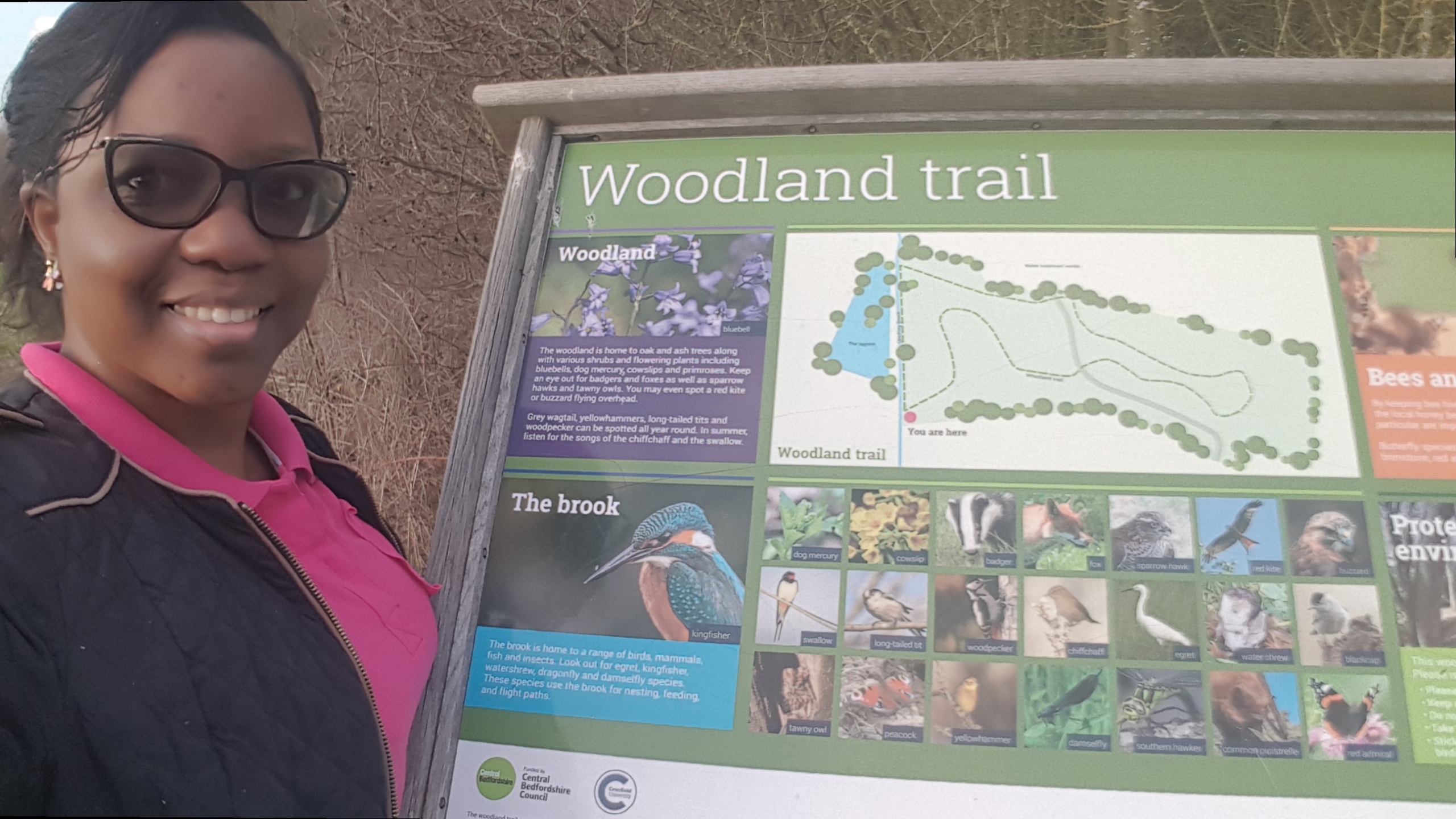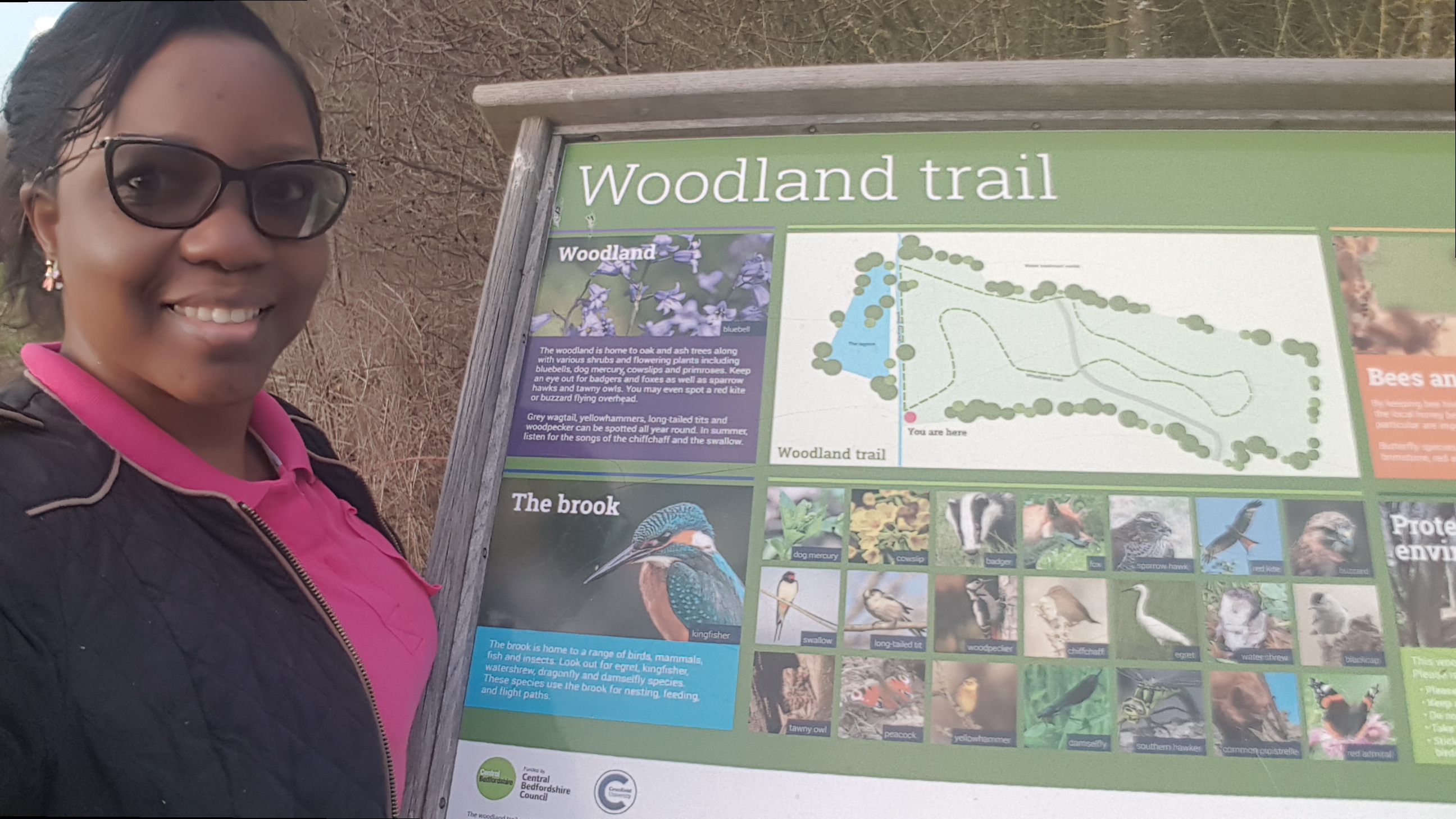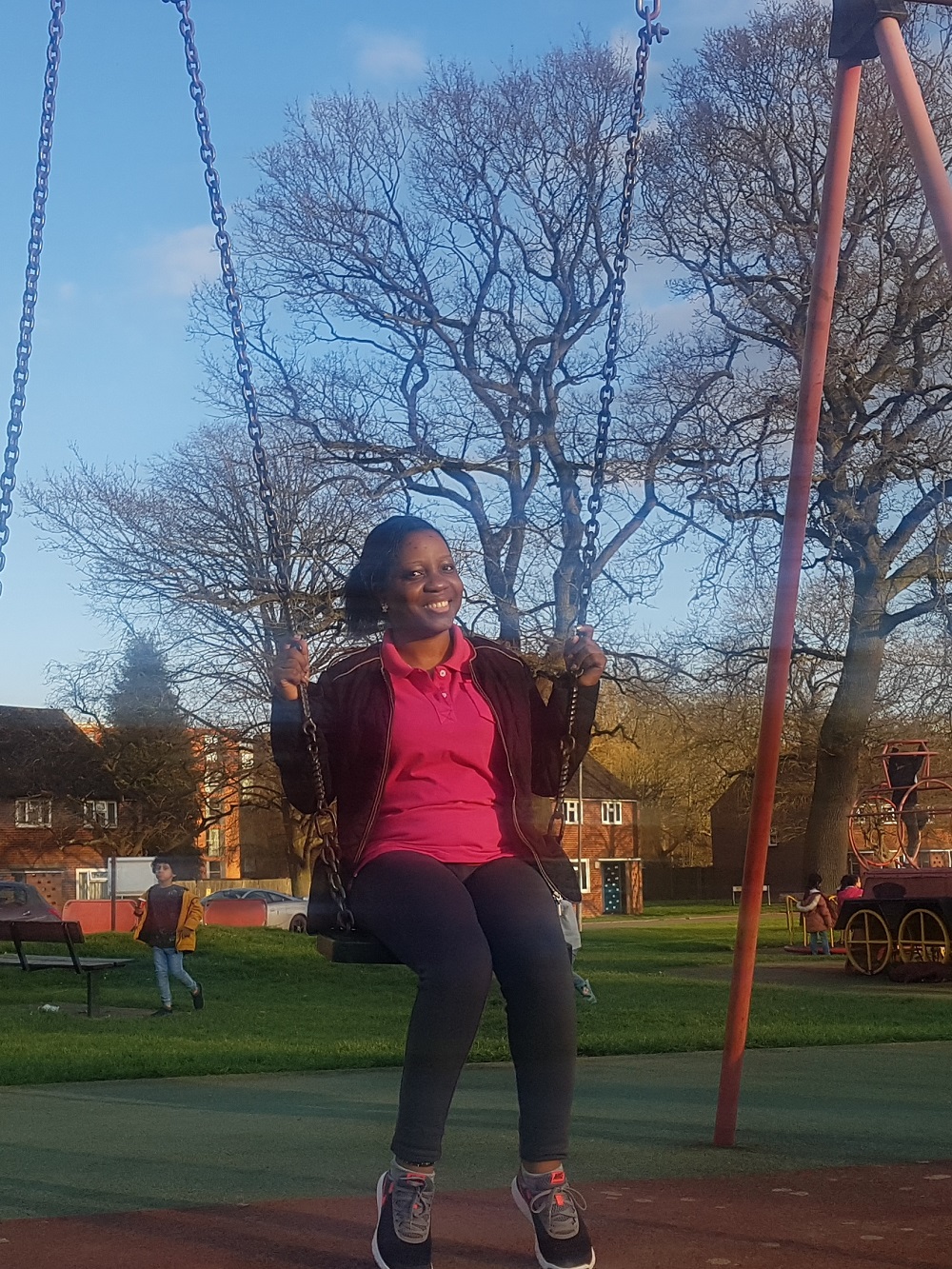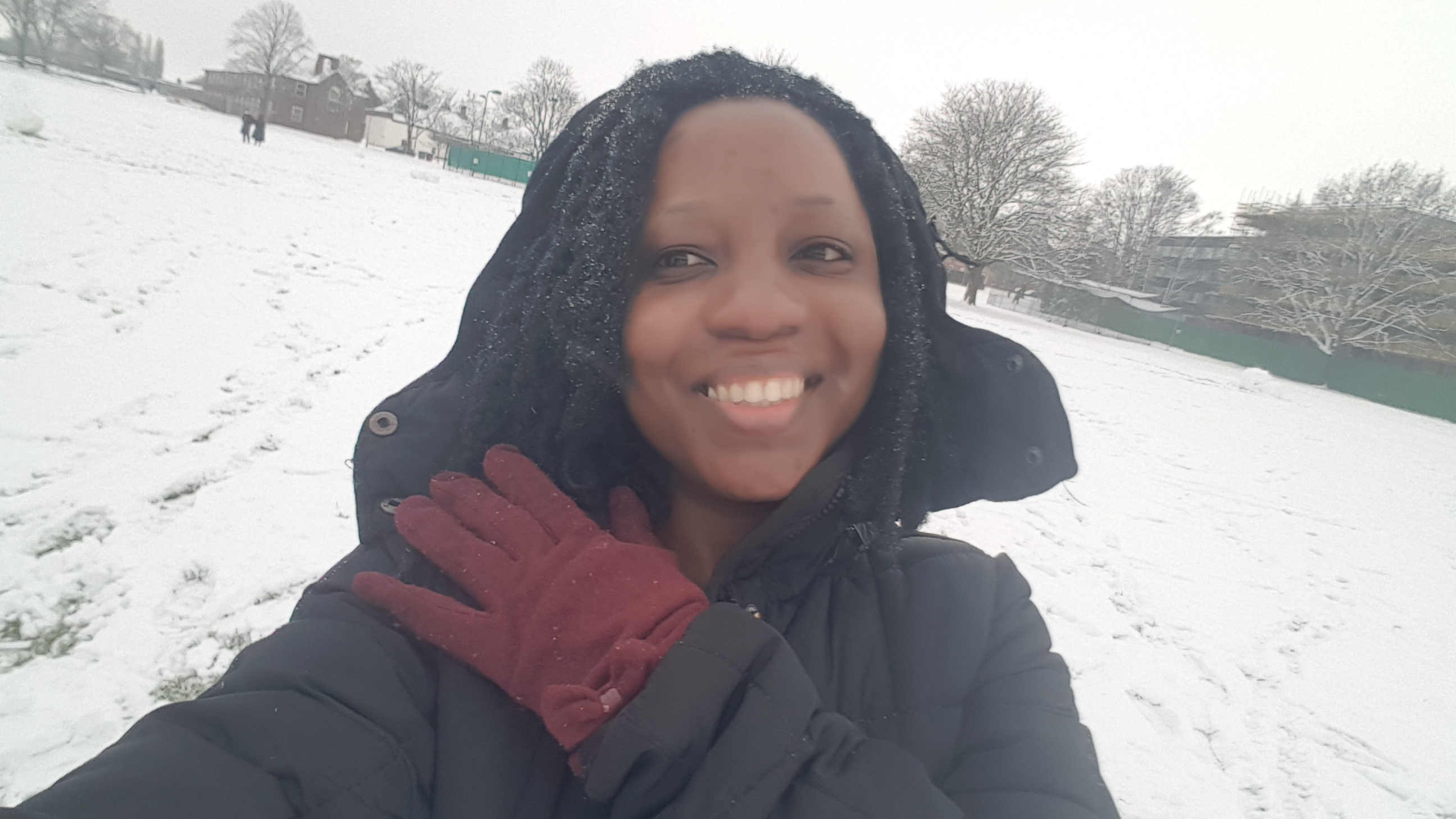Studying water at Cranfield
12/03/2021

Hello there! I’m Louise and I’m from Cameroon. Let’s have an inside look of my journey from my home country to this well-renowned University called Cranfield.
My interest in the water sector came from the fact that I grew up in a low-income country. Both urban and rural areas face daily water shortages and proper sanitation is still a luxury to most of the people living there.
My journey to Cranfield started a year ago, when I got the accepted into the Water and Sanitation for Development MSc in September 2019! I was delighted as this was a dream come true! But, due to some constraints, I had to defer my entry to the following year.
Here started my battle to gather all the means and make necessary arrangements for my trip to the UK. It was extremely tough as I had to constantly travel within three areas: Limbe (for work purpose), Douala (practical arrangements) and Yaoundé (UK Visa application). Ten months later, I suddenly received a cancellation letter of my MSc course. I was shocked! Fortunately, I was offered an alternative option, which I picked and that’s how I ended up studying for the Water and Wastewater Engineering MSc. My visa application process was also successful! I must admit, I was scared when I went to collect the results.
During my trip to England, my family was anxious, and had a sleepless night, waiting for me to inform them that I have safely arrived in the UK. As a whole it all went well and here I am, excited to commence my course and meet my classmates!
Unfortunately, nothing went quite as planned! I didn’t expect the pandemic to cause a lockdown for quite as long, impacting my wish to explore England in between my lectures. It was quite tough, especially for those like me who never experienced the complete lockdown back in my home country. It was also frustrating not being able to lively interact with lecturers and other students. In sum, my UK studies experienced got limited to my room and my laptop.
Quite fun right? Encountering the risk of sleeping during a lecture! LOL! Luckily for us, all the lectures were recorded.
So far, so good, despite all the drawbacks. The lecturers did find a way to make the lectures as vibrant as possible and I have enjoyed every single lecture, especially the Resources Recovery and the Nature Based Solutions ones!
The resources recovery module highlights practical gains from water and especially wastewater treatment plant. The wide range goes from electricity, water reuse technology and biological fertilizer, thus working towards the achievement of 3 SDGs (clean water and sanitation, affordable and clean energy and industry, innovation, and infrastructure). The Nature based Solutions give us an insight into incorporating nature conservation in water projects, in order to achieve the 13th , 14th and 16th SDGs, which are climate action, life below water and life on land.

As for life on campus, I’ve found a great balance as much as I can between studies and leisure. The swing at the children’s ground field has become my favourite area. There, we have the possibility to see others, watch the children playing, while social distancing of course! The calm environment and the green spaces everywhere, makes the campus suitable for studies, even though the weather is not always very friendly!

Talking of weather… on the 24 February, we had amazing snow in Cranfield! Students on campus went to the playing field, to build a snowman! It was amazing to see everyone, interacting with others and getting to know each other. Great beginning before for the last taught module I thought!

We are now at the stage of the course where we begin our group project, and my subject is “Link between water and sanitation services and biodiversity”. Quite funny that it happens to be based on one of my favourite lectures! I’m really looking forward to seeing the outcome of our work, especially with the lovely co-workers in the team.
I will keep you updated on my project…😊
Categories & Tags:
Leave a comment on this post:
You might also like…
Keren Tuv: My Cranfield experience studying Renewable Energy
Hello, my name is Keren, I am from London, UK, and I am studying Renewable Energy MSc. My journey to discovering Cranfield University began when I first decided to return to academia to pursue ...
3D Metal Manufacturing in space: A look into the future
David Rico Sierra, Research Fellow in Additive Manufacturing, was recently involved in an exciting project to manufacture parts using 3D printers in space. Here he reflects on his time working with Airbus in Toulouse… ...
A Legacy of Courage: From India to Britain, Three Generations Find Their Home
My story begins with my grandfather, who plucked up the courage to travel aboard at the age of 22 and start a new life in the UK. I don’t think he would have thought that ...
Cranfield to JLR: mastering mechatronics for a dream career
My name is Jerin Tom, and in 2023 I graduated from Cranfield with an MSc in Automotive Mechatronics. Originally from India, I've always been fascinated by the world of automobiles. Why Cranfield and the ...
Bringing the vision of advanced air mobility closer to reality
Experts at Cranfield University led by Professor Antonios Tsourdos, Head of the Autonomous and Cyber-Physical Systems Centre, are part of the Air Mobility Ecosystem Consortium (AMEC), which aims to demonstrate the commercial and operational ...
Using grey literature in your research: A short guide
As you research and write your thesis, you might come across, or be looking for, ‘grey literature’. This is quite simply material that is either unpublished, or published but not in a commercial form. Types ...







This is so interesting and good to hear your story. I also applied for Msc water and sanitation for development at the same university for 2021 starting october. I was accepted I only hope to be offered a scholarship to cushion me. If all goes well I hope to meet you and learn from you on adapting life their. Regards and hope to see you. By the way I am from Zambia.